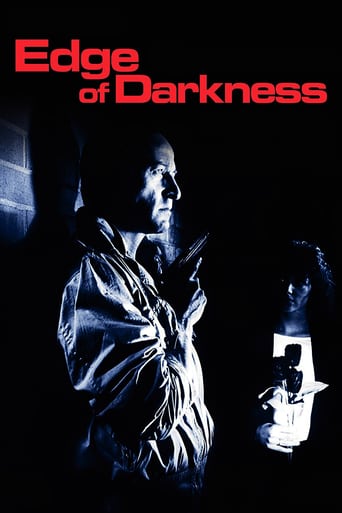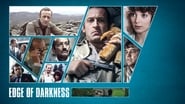Prismark10
I have wanted to review this title for ages and the recent re-showing by the BBC allowed me to admire this series once more. Of course almost 30 years later, the drama has aged a little but its not lost any of its power or relevance.The television drama is a landmark especially for the BBC. It signalled a change as to how drama productions would change with a shift away from the multi camera technique and realising the importance of good photography, direction, music as well as writing.The series was made in an era of the encroaching economic liberalism of the Reagan/Thatcher era. Private companies wanted control of government industries and there was paranoia over nuclear energy and nuclear weapons and the rise of green politics.Troy Kennedy Martin wrote a timely and in some ways prophetic nuclear conspiracy thriller of shady private organisations and Machiavellian governments in this unsettling drama.The much missed Bob Peck was an unknown when this drama was shown but earned a slew of awards soon after. He plays Craven a dogged Yorkshire detective whose daughter Emma (Joanne Whalley) is killed outside his house. At first it is assumed that the intended victim was Craven.However it is revealed that Emma was involved in a radical ecology group and had broken into a nuclear reactor. While Peck plays the grief stricken dad in search of answers, Joe Don Baker plays brash Texan CIA agent Jedburgh with a love of golf and Come Dancing (an early version of 'Dancing with the Stars' without celebrities!)Baker was a man who was a familiar face in television and cinema, Jedburgh was a role of a lifetime and boy, does Baker know it. He also brings a lot of light relief in this very serious drama but we are made well aware that he has teeth made of steel.The drama is rounded off by Charles Kay and Ian McNeice as a duo of unlikely amiable civil servants who bring a lot of sly and indeed camp humour with a touch of sinister touches.The series also featured an appearance by a real life politician, Michael Meacher who would go on to become a Labour Environmental Minister many years later. It also has fictional self serving politicians, various spies, political activists, police and even trade unionists regarded as public enemy number one at the time.The drama has an element of magical realism as Craven has visions of his daughter throughout the episodes, there is a sinister undertone threaded throughout the series and the standout scene belongs to Jedburgh in the Gleneagles Hotel as he whips out some plutonium.Finally a mention of the director, Martin Campbell a man who would later go on to re-invent the James Bond films not once but twice as well as later remaking this for a cinema audience. Campbell who started off making some sex comedies in the 1970s knows a good script when he sees it and really delivers the goods here.
Robert J. Maxwell
A Yorkshire police inspector's daughter is shot by a mysterious figure and dies in her dad's arms. Bob Peck spends the rest of the movie figuring out who killed her and why -- and he never shoots anybody. This stands in stark contrast to the Hollywood remake, in which the daughter's death merely provides an excuse for Mel Gibson to shoot everybody who looks at him cross eyed. This is the vastly better TV miniseries that provided the source for the remake.And yet it's hard to evaluate. The story is contemporary and powerful. The inspector's daughter was a member of an organization called Gaia, after the Greek's earth goddess. She was investigating a supposedly abandoned storage facility for useless nuclear waste. (I'm going to try not to give too much of the plot away.) There's more too it than that, of course, and it takes Peck the entire four hours or so to bring the narrative to a conclusion, and a costly and ambiguous one at that.There were a couple of bothersome features in the production though. I suppose it's difficult to lighten a story of a man grieving over the murder of his only relative. But that still leaves a lot of lugubrious close up of Peck's mournful face. The only time he seems to lose his melancholy is, sometimes, in the presence of the cheerfully antinomian CIA agent played by Joe Don Baker, whose bulk and flab add some materiality to the images. I perked up, too, when Allan Cutherbertson was on the screen, although I wish he were still ginger instead of gray. Eric Clapton, whom I admire very much both as a musician and a man, wrote a score that adds little to the film.Another problem may be attributed to my own ignorance of those bureaucratic entities. There seem to be an enormous number of them and I lost count of who was who. Let's see. There is the Northern Police in Yorkshire, for which Peck works. Then there's the Metropolitan Police in London, somewhat at odds with the other. Then there's Scotland Yard. Then there's a special branch that reports directly to the PM, a shadowy force. Then the CIA. And those are just the agents of social control.Among the civilians, or quasi-civilians, there is an Irish prisoner who works for somebody, a union whose boss is treacherous, and finally the corporation that wants to buy the nuclear storage facility with the goal of harnessing the power of the universe to destroy enemy missiles before they can leave their silos and then establish a "solar empire" led by "the United States of America -- and its allies." The corporation is called something like The Kansas Nuclear Fusion, Barbecue, and Car Wash Corporation.For the middle two hours of this four-hour presentation I was thoroughly befuddled by the individuals representing these organizations and by the valences and goals of the organizations themselves. I didn't know who was following whom, or why.From time to time Peck hallucinates conversations with his now-dead daughter (Whaley) and in the last one she tells him that even if man destroys himself the planet will survive. Black flowers will grow, and they'll absorb the sun's heat and melt the polar ice caps and the earth will be watered and flourish again. (Something like that.) When Peck and Baker are having their last conversation -- both drunk and dying by degrees -- Baker airily dismisses the argument and tells a story about seeing Russian soldiers in Afghanistan eating black flowers, from which he draws the conclusion that man will destroy himself and the planet along with him. I told you the story was powerful. But the last shot is of the snow-patched shore of a Scottish lake and we see black flowers shivering in the wind. So I guess the earth wins -- maybe. Or, as Ernest Hemingway said, "Wouldn't it be pretty to think so?"
michaelj108
One of the central political points of the story is that policies come and go, but people stay. When one policy is set in motion, it rolls on, even if back at headquarters the policy has changed. Darius Jedburgh explains the changes of policies in Washington to Ron Craven, with a shrug. The policy changed but the people who worked for the previous policy went on. Policies can be turned on and off, in this case, by executive orders, but people cannot. When Jedburgh set up GAIA he recruited believers who would do some serious work, and when Washington policy changed, they just kept going as best they could. There is an important message here that few people in the policy business never get. Once something is started, it may take on a life of it own. The lesson to draw then is to be careful about what is started, a lesson few learn.
Ruud Va Di
One of the best English realistic thrillers ever made. A superb leading role by the fabulous Bob Peck. Plot is interesting to say the least. Up to date at the time Chernobyl). Relevant (environmental issues) and drenched with intrigue/conspiracies. All too familiar... Think Bhopal, think war in Irak. You get the picture. Who to trust, where to go? Family drama. Top roles also for Ian McNeice and aha... Joe Don Baker with a familiar sounding name. Recognised it? The invading of privacy and peace of mind meant that I couldn't sleep in 1985 when it appeared on TV. It is so realistic it became scary. The end is a classic climax and and intrigue in itself.Am on the lookout for the DVD or video. Anyone?





